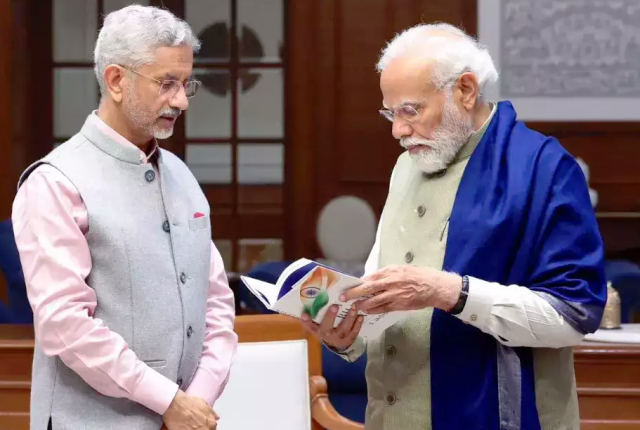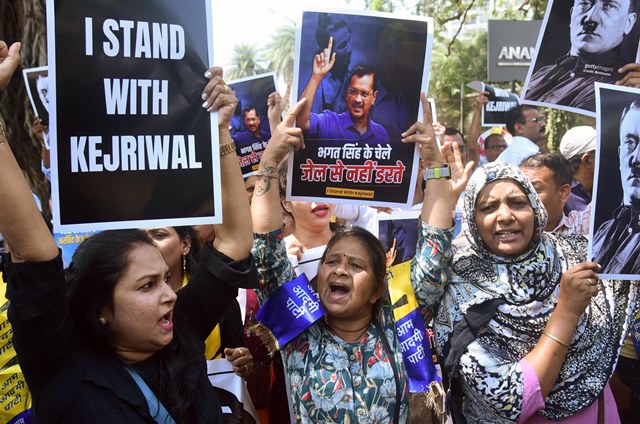
COVID’s spread ebbs; Kashmir issue resurfaces; Mallya’s extradition
The number of COVID cases continued to decline in India. Last week, daily cases were down to around 50,000. Not long ago the daily number of cases had soared to more than 400,000. India’s vaccination programme, stymied for a while by widespread vaccination shortages, has also picked up. Several states, including Delhi, have eased restrictions and lifted lockdowns. Tourist destinations such as the Taj Mahal are now open again and big cities are beginning to get back to being busy and crowded.
While the ebbing of COVID’s spread has brought cheer to people, particularly small businesses and daily wage earners, experts say a third wave of the spread of Corona, particularly its new variants, cannot be ruled out. They advise caution and gradual lifting of restrictions rather than a swift relaxation that could turn out to be hasty.
Of concern is the fact that although the vaccination programme has been gaining momentum, India has vaccinated only 4% of its population till now, a mere drop in a population that numbers more than 1.4 billion.

At the end of the first wave early this year, India’s authorities may have jumped the gun while freeing up restrictions. Religious gatherings of millions of people (e.g. the Kumbh Mela) were allowed; elections in several states were held preceded by large political rallies, and sports and entertainment events drawing several thousand were allowed. The Indian government came under massive criticism when the second wave of corona hit in Spring this year. As India’s COVID cases soared, acute shortages of medical care, including hospital beds, oxygen, and medicines shocked the world and the death toll owing to the virus turned alarming.
Many observers feel India needs to exercise more caution this time around to prevent a repeat of the second wave that ravaged the country. It is a tough decision for the government to make. India’s economy has been rendered quite fragile because of COVID’s spread and agencies have been cutting down their growth projection. In a scenario such as that, it could be tempting for the authorities to relax restrictions in the hope that it would boost economic activity but as risks of a third wave loom, smaller steps towards taking down measures such as lockdowns and other stipulations could be a wiser strategy.
Imran Khan wants US to help resolve Kashmir issue
The territorial conflict between India and Pakistan over Kashmir is nearly 75 years old. Amid wars, insurgency, and the rise of militancy in the area, the issue has remained unresolved. Now, Pakistan’s Prime Minister Imran Khan has raised another bogey for India. In an interview recently, Khan called for an intervention by the US Administration to resolve the Kashmir issue. India has always been of the opinion that the Kashmir issue can be resolved by the two countries by themselves and not with the intervention of a third party.

Although Khan’s new statement before he proceeds on talks with US President Joe Biden has not evoked a quick official reaction from the Indian authorities, it is not going to go down well. India believes Kashmir is its internal issue and feels believes that Pakistan sponsors or backs terrorism in the state. In his interview, Khan also talked about nuclear disarmament and said there was no need for the two countries to remain as nuclear powers once the Kashmir issue was resolved. It’s over to the Indian side now for a response.
Vijay Mallya’s extradition
Last week, the long arm of law reached out to defaulting business tycoon and former billionaire Vijay Mallya. First, Mallya, 65, lost his case against extradition to India in a UK court and was disallowed an appeal in the UK Supreme Court. More importantly, his attached assets, including his shareholding in United Breweries, India’s largest brewing company, were sold and the proceeds were received by Indian banks on whose loans Mallya had defaulted.
Mallya’s defaulting loans are not the only ones for which the banks have been transferred assets. According to India’s Enforcement Directorate, it transferred a portion of the seized assets valued at Rs 8,841 crore that it had seized in connection to, besides Mallya’s defaults, those of two other fugitive Indian businessmen, Nirav Modi, and Mehul Choksi, both of whom the Indian authorities are trying to extradite back to India.

All three have been accused of defaulting on large bank loans by either siphoning them out or misusing them and then not paying back their lenders. But among them Mallya stands out. He has had a larger-than-life image and reputation as a playboy billionaire, which made him a celebrity; and has even dabbled in politics (he is a former member of the Upper House in India’s Parliament).
If Mallya is eventually brought back to India, the political fallout of Mallya’s extradition could be significant. If he is tried in India for his alleged financial misdemeanours, it could be a boost for the Modi government’s image, which has taken a bruising in recent times. If the Modi regime shows that it deals a hard hand to financial defaulters such as business tycoons, it could help it counter its opponents who have often accused it of being soft on India’s business tycoons.



